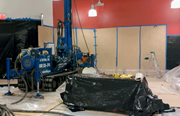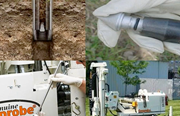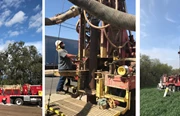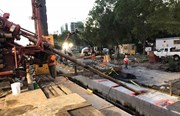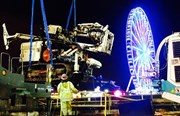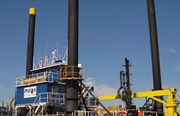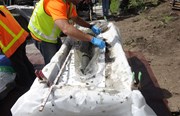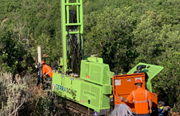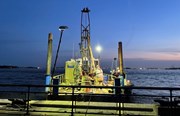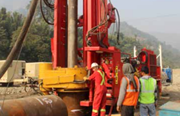3 Things Your Drilling Contractor Should Be Doing to Prevent Equipment Breakdowns
By: Bill PoupisIf you’ve spent time managing environmental or geotechnical drilling projects, you know that unexpected equipment failures can quickly derail your schedule, inflate costs, and create unnecessary headaches. The reality is that mechanical breakdowns happen but the best drilling contractors have proven strategies to prevent them and robust plans to respond when they do occur.
Here’s what to look for to ensure your contractor keeps your project running smoothly and safely from start to finish.
Invest in a Thorough Preventive Maintenance Program
Breakdowns rarely happen by chance, they often result from neglected maintenance or missed inspections. A reliable contractor will have a formal preventive maintenance program in place, backed by experienced mechanics and well-trained crews.
Don’t be shy about asking for proof. Request a copy of their maintenance checklists or records showing how they track service intervals, inspections, and repairs. Top contractors use digital systems to document and schedule maintenance tasks, ensuring nothing is overlooked and that equipment is job-ready before it leaves the yard.
Field crews should also conduct pre-trip inspections to catch potential problems before the rig rolls out. If an issue is found, it should be resolved promptly — reactive fixes after deployment are not a substitute for proper preparation.
Commit to Daily On-Site Care and Proactive Inspections
Keeping rigs running smoothly doesn’t stop at the shop door. Once on site, drill crews must stick to consistent daily maintenance routines. A simple practice like greasing the rig at midday and at day’s end can significantly reduce wear and tear that leads to downtime.
Beyond daily lubrication, crews should inspect structural components: bearings, bushings, hoses, and other critical parts, to identify wear before it becomes a failure. When teams know what to look for and have clear inspection guidelines, they can address small issues before they escalate.
Have a Clear Contingency Plan — and the Resources to Back It Up
Even with diligent maintenance, surprises can happen. When they do, your contractor’s response plan is the difference between a brief pause and a costly shutdown.
Before your project starts, confirm how they handle breakdowns:
- Do they have mobile mechanics available for on-site repairs?
- Are replacement parts or rigs readily accessible to keep your project moving?
- Can they deploy backup equipment from other branches if needed?
- Is the crew trained to handle basic fixes independently?
Large contractors with multiple locations and a deep equipment inventory have a clear advantage when it comes to quickly replacing rigs or parts. They can pull resources from nearby yards to keep your timeline intact — something a smaller operator may struggle to do.
No one can eliminate the possibility of an equipment failure entirely, but a contractor with a robust maintenance culture, disciplined field routines, and a clear plan for handling breakdowns will save you time, money, and headaches.
Before you sign on the dotted line, have a candid discussion with your contractor about how they prevent breakdowns and how they’ll respond if one occurs. Knowing they have the people, parts, and plans in place will give you confidence that your project will stay on track, no matter what.
Want to learn more about best practices for drilling site success? Contact us to discuss how we keep projects efficient, safe, and on schedule.





